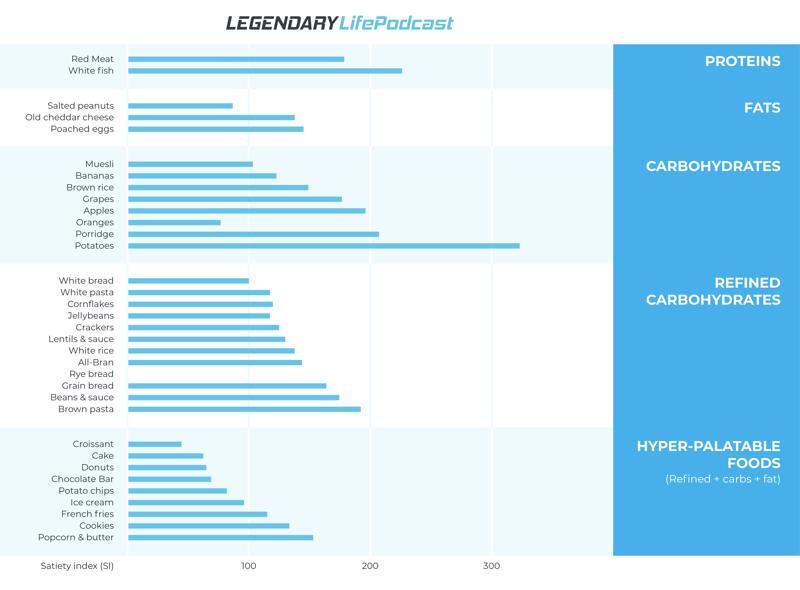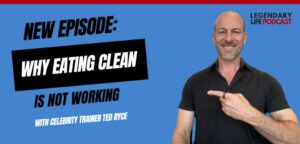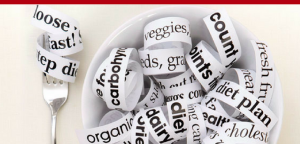by Ted Ryce
547: The Truth About Low Carb Diets: 5 Nutrition Facts That Low-Carb Gurus Aren’t Telling You with Ted Ryce
by Ted Ryce
by Ted Ryce
547: The Truth About Low Carb Diets: 5 Nutrition Facts That Low-Carb Gurus Aren’t Telling You with Ted Ryce
547: The Truth About Low Carb Diets: 5 Nutrition Facts That Low-Carb Gurus Aren’t Telling You with Ted Ryce
more
by Ted Ryce
547: The Truth About Low Carb Diets: 5 Nutrition Facts That Low-Carb Gurus Aren’t Telling You with Ted Ryce
I started my low-carb lifestyle in 1999.
It worked for me – until it didn’t. As I put on body fat despite keeping my carbohydrate intake low, I began to question why this was happening. I felt I was following all the advice that the gurus of the time told me.
Eventually, I figure it out. And what I learned shocked me to my core. Many of the nutrition beliefs that I learned from the low-carb community weren’t true.
As I began to learn and implement principles from the best scientific evidence on fat loss, my body got leaner and healthier.
Today, I stay 10-15% body fat all year long. And I do this while eating carbs and even dessert.
I’ve stayed lean while eating pasta in Italy and tacos in Mexico.
My current plan is something I can stick with for the rest of my life. And it’s what we teach our clients in my coaching program.
Many of my clients come to me because they’ve tried keto and low-carb diets. They lost weight initially. But eventually gained the weight back.
And once I teach them these nutrition facts backed by the most up-to-date research on fat loss, they’re able to lose fat with less effort while creating better health.
So let’s dive into the 5 facts that low-carb gurus aren’t telling you.
1. Equal Fat Loss in Low-Carb and Low-Fat Diets
While low-carb diets have been praised for their fat-loss properties, controlled studies paint a more nuanced picture. Research by Kevin Hall and colleagues showed no difference in fat loss between low-carb and low-fat diets when protein and caloric intake were equivalent.
Action Step: Balance is key. Maintain a consistent protein and caloric intake whether you choose a low-carb or low-fat approach.
2. Overeating Saturated Fats Leads to More Fat Gain
The type of fat you consume matters significantly. Overfeeding studies reveal that consuming excess saturated fats results in more fat gain compared to overeating polyunsaturated fats.
Action Step: Aim to get most of your fats from polyunsaturated sources like fatty fish, walnuts, and flaxseeds.
3. Higher-Protein Intake Combined with Weight Lifting Equals More Muscle and Less Fat
A high-protein diet combined with resistance training has a potent effect on body composition. Studies show that this combination results in more muscle gain and greater fat loss than a lower protein intake.
Action Step: Incorporate resistance training into your workout regime and increase your protein intake. A goal of 1.6-2.2 grams of protein per kilogram of body weight per day is a solid target.
4. Some Carbs Outperform Fats for Hunger Management
Low-carb advocates often claim that fats are superior for satiety. However, research from Australia’s satiety index study found that carbs like potatoes are more satiating than fats.
Action Step: Don’t be afraid of including satiating carbs like potatoes in your diet. These can help keep your hunger at bay and contribute to a balanced eating plan.
5. Excessive Saturated Fat Can Raise Your Cholesterol Levels
While it’s possible to get lean on a high saturated fat, low-carb diet, it’s important to consider the impact on your cholesterol. High intake of saturated fat can raise cholesterol to unhealthy levels, increasing the risk of heart disease.
Action Step: Monitor your saturated fat intake and regularly check your cholesterol levels to ensure they’re within the healthy range.
Putting it All Together
If you’ve failed at doing low-carb diets, it’s not because you lack willpower or didn’t try hard enough.
It’s because the diet is to strict for most people. And it’s based on false assumptions that can cause you to fail at fat loss.
I’ve worked with clients for 24 years. The only thing that works for them long-term is to teach them the science-backed nutrition principles and help them to apply them into their lives in a sustainable way.
In other words, you must create your own blueprint for fat loss based on your unique body, preferences, and lifestyle. Once you do this, getting the body you want is just a matter of time.
For too long, we’ve let dietary dogma dictate our health. It’s time to break free and focus on what truly matters – our well-being. So, here’s to a new journey of exploring what works best for you.
Remember, the goal here isn’t to berate the low-carb lifestyle. Like any diet, it can be a viable choice if it feels sustainable and is executed thoughtfully. This is more about challenging unhelpful dietary absolutism and, above all, ensuring your choices aren’t compromising your broader health and vitality.
Now, I invite you to join me in this quest. Try a balanced approach, experiment with these action steps, and observe the results. After all, the best judge of what works for you is you.
Related Episodes:
Ted Talk 82: Help! Why Am I Not Losing Weight On A Low Carb Diet?
450: The Top Reasons You’re Not Losing Weight On the Keto Diet with Ted Ryce
Links Mentioned
Want To Lose Fat, Transform Your Body & Live Your Best Life In 2023?
I’m offering this blueprint that will lead you to a fail-proof long-lasting result with your body, with your health that will help you reach that potential that you have inside and become your own super self.
If you’re interested in working with me, schedule a Breakthrough Call and we will discuss your goals, challenges and see if we are a good fit.










